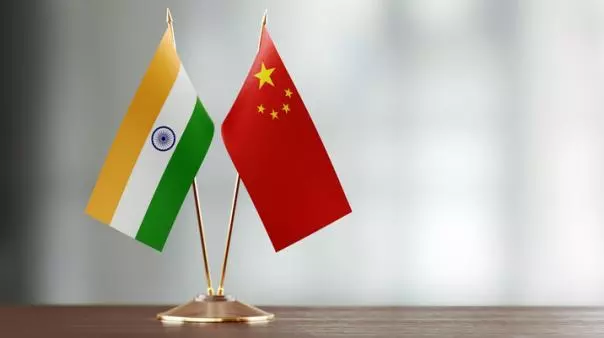
China says India betrayed accords, consensus
text_fieldsNew Delhi/Beijing: China on Thursday once again claimed the violent face-off along the Line of Actual Control (LAC) in Ladakh was caused by India's "betrayal of consensuses and unilateral provocations" and that it "took place on the Chinese side".
The Chinese claim is contrary to what India has said.
The Ministry of External Affairs in New Delhi last week said since early May, the Chinese side has been hindering India's normal, traditional patrolling pattern along the LAC in Ladakh.China says India betrayed accords, consensus
In mid-May, the Chinese side attempted to transgress the LAC in other areas of the Western Sector of the India-China border areas. The Chinese attempts were invariably met with an appropriate response from India following which, the two sides were engaged in discussions through established diplomatic and military channels to address the situation arising out of Chinese activities on the LAC.
The senior commanders of both sides met on June 6, and agreed on a process for de-escalation and disengagement along the LAC that involved reciprocal actions. Both sides had agreed to respect and abide by the LAC and not undertake any activity to alter the status quo.
However, the Chinese side departed from these understandings in respect of the LAC in the Galwan Valley area and sought to erect structures just across the LAC. When this attempt was foiled, Chinese troops engaged in violent actions on June 15 that directly resulted in casualties.
Now at a news conference in Beijing on Wednesday, China's Defence Ministry spokesman senior colonel Wu Qian blamed India for the violent clash in which 20 Indian soldiers and an unknown number of Chinese troops were killed.
The China Daily quoted Wu saying that the June 15 clash "happened because India's front-line border force violated accords and consensuses reached by both sides and made provocations by trespassing into territory on the Chinese side of the Line of Actual Control in the Galwan Valley."
He claimed that when Chinese troops were trying to negotiate about the matter, they June 15 clash "happened because India's front-line border force violated accordsJune 15 clash "happened because India's front-line border force violated accordswere suddenly attacked by Indian officers and soldiers. "That led to fierce physical conflicts between the two sides in which the Chinese troops used defensive measures," Wu said.
"The entire incident was caused by India's betrayal of consensuses and unilateral provocations and took place on the Chinese side of the line," he repeated.
After the clash, China and India communicated and negotiated through military and diplomatic channels, he said adding that officers from both sides exchanged views on easing tensions and maintaining the border area's peace and stability during a second round of talks between high-ranking officers at the level of group army commander on Monday.
He said the two sides were also discussing the holding of a teleconference between their defence ministers. "As peace and stability in border areas are in the interests of both sides, China hopes India will work with it to fulfill the consensuses reached by national leaders from both countries, honor agreements and accords between the two sides, address related issues via talks and negotiations, and strive to ease border tensions," Wu said.






















